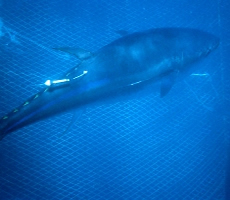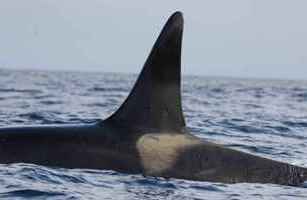Theme sessions


1. Southern Ocean ecosystems
The Southern Ocean is a highly dynamic system, home to a large diversity of species. Weather, climate, ice extent, and ocean currents all influence the Southern Ocean which is considered to be undergoing unprecedented levels of change. This theme session focuses on how bio-logging can provide valuable insights into evaluating the influence of oceanographic and climatic conditions on individuals and populations in the Southern Oceans and how variability in this environment may affect Southern Ocean species into the future.
Moderators: John Gunn, Mary-Anne Lea
2. Fishery and biodiversity management applications
Collection of information on the spatio-temporal dynamics of the behaviour of species relevant to fisheries and environmental managers has been made possible through bio-logging science. Integration of such information into population assessments, spatially explicit management models and ecosystem models is difficult and as a result the uptake of such data into management applications has lagged somewhat. This theme session focuses on the integration of individual based bio-logging data in management tools and applications, new methods for the potential integration of these data into management tools and applications and future requirements of bio-logging science for input into management applications.
Moderators: Campbell Davies, Julian Metcalfe
3. From individuals to populations – inference of population dynamics from individuals
Bio-logging science focuses on the collection of often novel behavioural and biological information from the individual. However, regularly questions and issues associated with the collection of these data relate to populations and systems rather than individuals, requiring the inference of population level and system dynamics from individual based information. This theme session focuses on the use of bio-logging data collected at the level of the individual and the application of these data to address issues and questions relating to populations and systems.
Moderators: Barbara Block, Katsufumi Sato
4. Conservation biology
Data provided through bio-logging science can improve our understanding of the behaviour and biology of species of conservation concern and in doing so provide information important for the management of these species. This theme session focuses on the application of bio-logging science in understanding the biology and ecology of species of conservation concern and the associated development of tools relevant to conservation issues.
Moderators: Simon Goldsworthy, Nick Gales
5. Habitat modelling
Understanding habitats of importance and how the environment may influence the behaviour of species is critical to understanding how a changing environment may influence individuals and populations and what management measures may be required to sustainably manage populations in this changing environment. This theme session focuses on how bio-logging data may be used to better understand the relationships between individuals, their habitat and habitat use.
Moderators: Alistair Hobday, Toby Patterson
Photo credits (L-R): B. Block, J. Durban